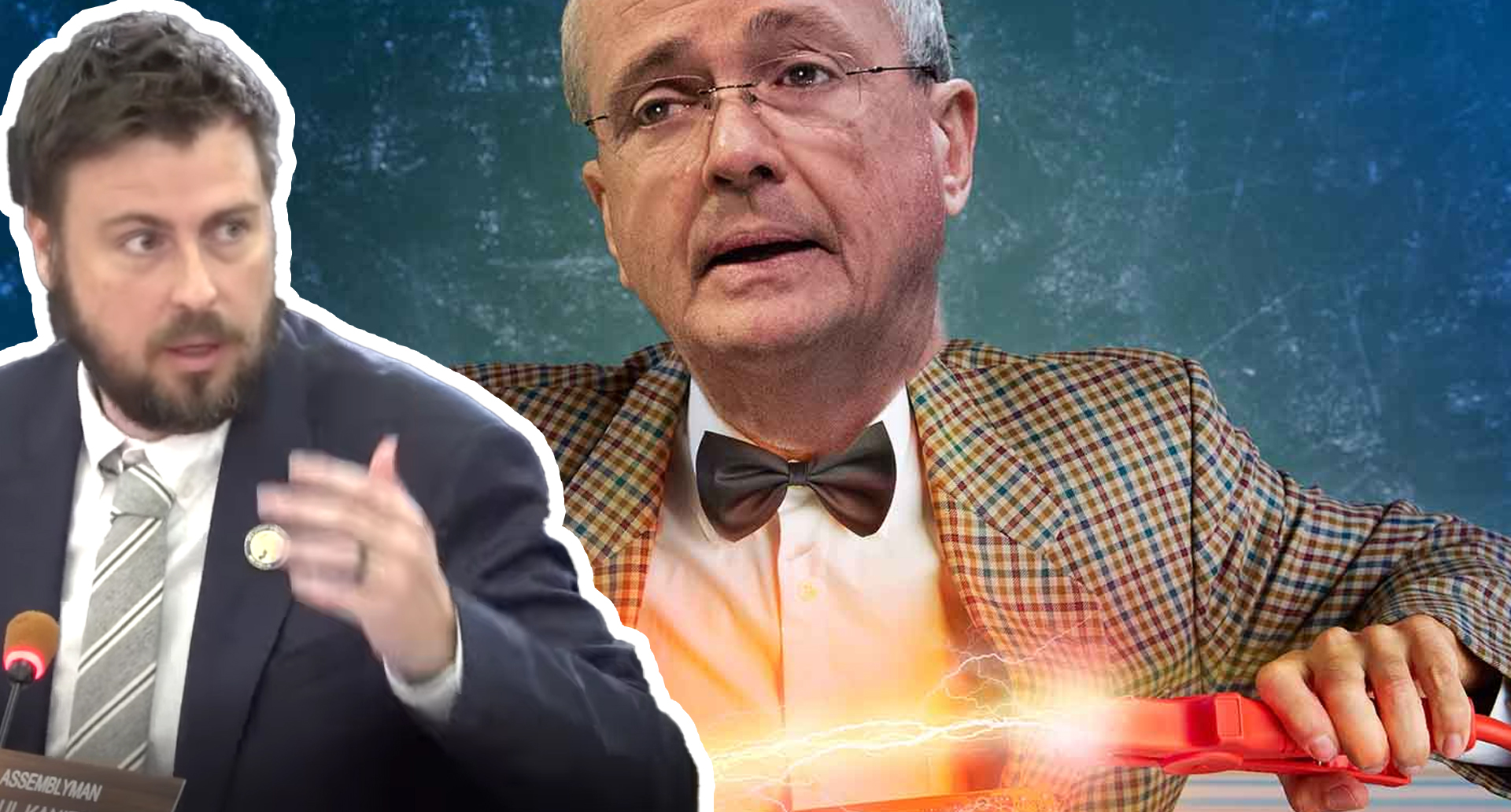TRENTON, N.J. — The New Jersey Senate Environment and Energy Committee has advanced Senate Bill No. 249, which would require electric utilities to create and implement plans to electrify building systems and reduce greenhouse gas emissions.
It’s a hot piece of garbage, one lawmker told the bill’s supporters.
The bill, reported unfavorably without amendments, was met with sharp criticism from Assemblyman Paul Kanitra, who warned the legislation would increase utility bills and worsen the state’s energy situation.
The bill directs the Board of Public Utilities (BPU) to establish a “beneficial building electrification and decarbonization program” within one year of its enactment.
Under the program, each electric public utility in the state must develop a multi-year plan to transition building end-use systems — including space heating, water heating, industrial processes, and transportation — from non-electric sources to efficient electric alternatives.
The definition of “beneficial building electrification and decarbonization,” as stated in the bill, includes any change that reduces greenhouse gas emissions, reduces cost from a societal perspective, or promotes the increased use of the electric grid during off-peak hours.
Ad: Save every day with Amazon Deals: Check out today's daily deals on Amazon.
Utilities’ plans must meet or exceed greenhouse gas emission reduction targets set by the BPU and pass a cost-effectiveness test that accounts for environmental benefits, including reduced emissions of greenhouse gases and methane.
Committee amendments to the bill revised terminology and made technical changes, including the formal use of the term “beneficial building electrification and decarbonization” throughout the bill.
Key points
- Senate Bill No. 249 requires NJ electric utilities to develop electrification and decarbonization plans to reduce emissions.
- Utilities must meet BPU targets and demonstrate cost-effectiveness using environmental metrics.
- Assemblyman Paul Kanitra strongly opposed the bill, citing rising utility rates and failed energy policies.
Kanitra delivers sharp rebuke in committee hearing
Assemblyman Paul Kanitra voiced strong opposition during the committee session, describing the bill as contributing to what he characterized as an ongoing energy crisis in New Jersey.
“This bill is exactly what got us to this energy crisis in the first place,” Kanitra said during public remarks. “I cannot believe that we are even talking about moving this through committee.”
Kanitra criticized recent state energy policies, including investments in offshore wind projects and a shift away from natural gas. He said these moves have contributed to higher energy costs, and warned that the current legislation would compound those issues.
“We’re here and the state is facing these massive increases in utility costs because we demonize natural gas, because we spent billions of dollars on offshore wind turbines that are never, ever going to get built,” he said.
He further questioned the logic of increasing demand on the electric grid while attempting to address affordability issues.
“The solution here, the bill that got put in front of us, is let’s solve ratepayer issues by putting more demand on the system. It’s incomprehensible to me that that’s the solution,” Kanitra added.
Kanitra referenced a June 2024 letter submitted by the Division of Rate Counsel to the Senate Environment and Energy Committee, stating the agency had previously warned that similar legislation would increase utility bills. “The overarching concern… is this proposed legislation will increase utility bills for ratepayers who are already struggling with multiple utility rate increases,” Kanitra quoted from the letter. “We urge you to not pass this bill out of committee without amendment.”
He also expressed frustration with the committee’s voting behavior, alleging a lack of opposition among Democratic members. “I have not seen a single Democrat vote against a bill,” he said. “You were sent here by the people, by your constituents, to vote the right way. I can’t imagine how that means mindlessly doing whatever leadership wants you to do.”
Kanitra concluded by warning committee members of political consequences and media scrutiny if the bill proceeded.
“You are going to get eviscerated in the press for voting this through committee,” he said. “Everyone in this room knows it’s a hot piece of garbage. I am doing you a favor… you still have the chance to vote your conscience and vote no on it.”
Next steps for legislation
The bill was pre-filed for the 2024–2025 session and reflects changes made during technical review.
It now moves forward in the legislative process, pending full Senate consideration. If enacted, the BPU would oversee rulemaking and utility compliance with electrification and decarbonization targets statewide.
